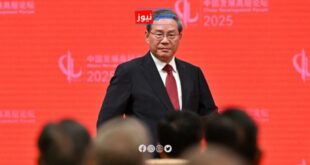A new round of indirect talks between Israel and Hamas is set to begin today, Thursday, in Qatar, in an attempt to reach a ceasefire agreement in the Gaza Strip. These talks come amid growing concerns of military escalation in the region, as the conflict has resulted in the death of over 40,000 Palestinians during 10 months of war, according to Hamas.
The negotiations are taking place at the request of mediators – Qatar, the United States, and Egypt – at a time when international pressure to halt hostilities is increasing. U.S. President Joe Biden has expressed hope that a ceasefire could help prevent a potential Iranian attack in response to the assassination of Hamas leader Ismail Haniyeh in Tehran, which Iran blames on Israel.
CIA Director William Burns is expected to attend the talks, along with the heads of Israel’s Mossad and Shin Bet security agencies. The discussions are based on a plan announced by Biden on May 31, which includes a six-week truce with an Israeli withdrawal from densely populated areas in Gaza, and a prisoner exchange.
Meanwhile, regional tensions are escalating following the assassinations of Haniyeh and a Hezbollah military commander. Iran has rejected Western calls to refrain from attacking Israel, while its allies in Lebanon, Iraq, and Yemen threaten to retaliate for the assassinations.
On the ground, Israeli military operations in Gaza continue, with medical sources reporting casualties from airstrikes on Khan Younis and Gaza City. The Israeli army has announced the dismantling of over 30 Hamas sites across the strip.
These developments occur against the backdrop of a humanitarian catastrophe in Gaza, where most of the 2.4 million residents have been displaced and face severe shortages of basic necessities. Philippe Lazzarini, head of UNRWA, has called for a ceasefire to restore dignity to women and girls in Gaza who are enduring harsh living conditions.
The talks in Qatar represent a crucial opportunity for de-escalation in a conflict that has had far-reaching regional implications. As the international community watches closely, the outcome of these negotiations could significantly impact the future of Gaza and the broader Middle East.
 فاس نيوز ميديا جريدة الكترونية جهوية تعنى بشؤون و أخبار جهة فاس مكناس – متجددة على مدار الساعة
فاس نيوز ميديا جريدة الكترونية جهوية تعنى بشؤون و أخبار جهة فاس مكناس – متجددة على مدار الساعة








 China Assures EU: We Have Tools to Offset Economic Turbulence Amid Tensions with Washington
China Assures EU: We Have Tools to Offset Economic Turbulence Amid Tensions with Washington



